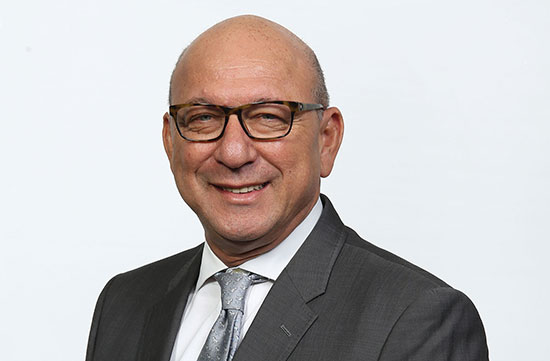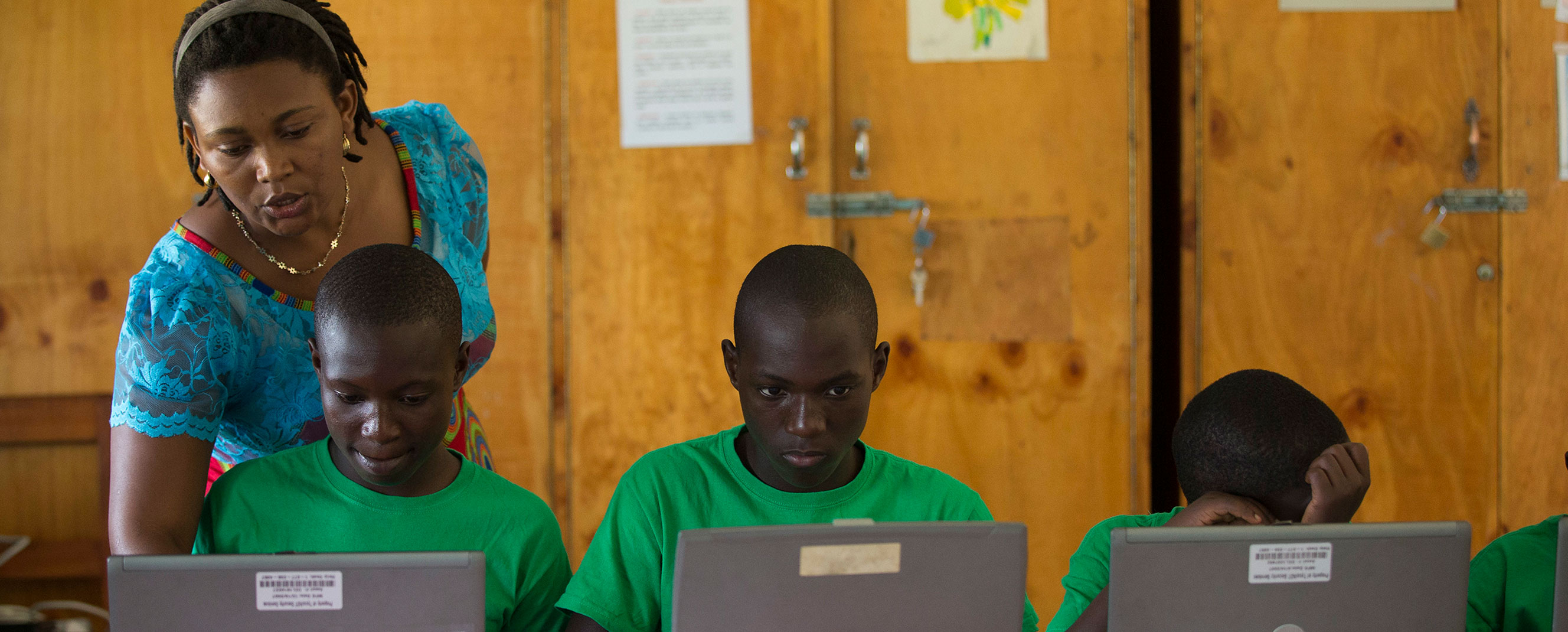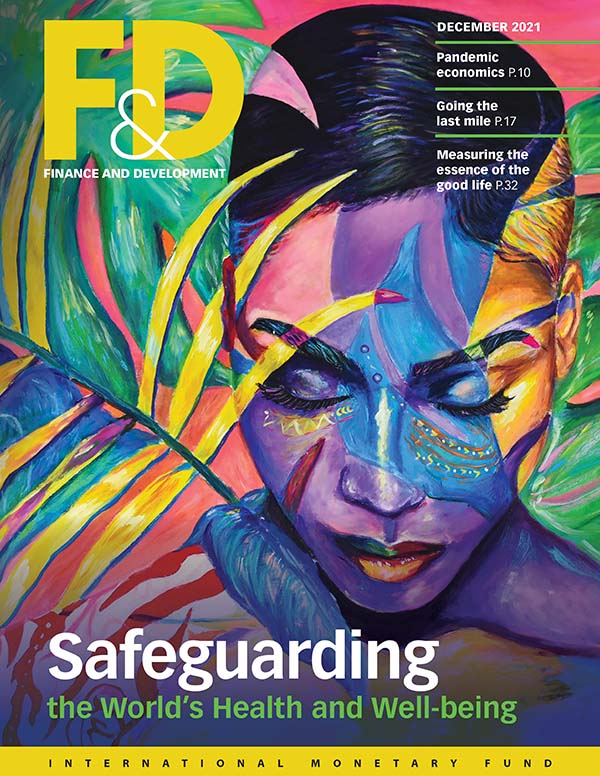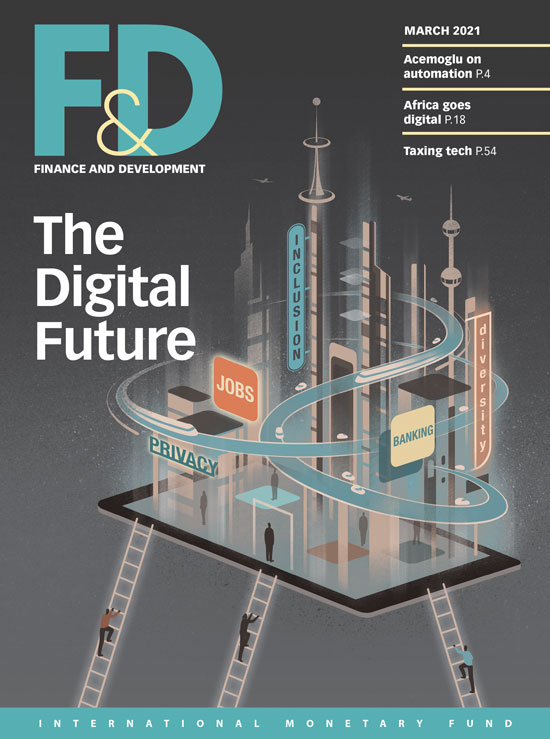South Africa’s longest-serving finance minister, Trevor Manuel, reflects on the country’s lost decade
When the apartheid regime ceded power following South Africa’s first democratic elections in 1994, the economy was in shambles and deeply unequal. Debt service costs as a share of GDP were crippling. Trevor Manuel—a veteran of the anti-apartheid struggle who was appointed minister of finance—made a tough call. He revamped the budgeting process and set a stringent deficit reduction target. By 2006, the economy was growing at its fastest pace in more than two decades, and the budget deficit was close to zero—outcomes few thought possible. “Part of leadership,” Manuel said, “is that you must not be afraid to take a stand on some issues if you are on solid ground.” It’s a position that has guided him throughout his career. Blunt in his criticism of the “old order,” he put voice and representation of emerging market and developing economies squarely on the international agenda, both as chair of the World Bank’s Development Committee and as head of the Committee on IMF Governance Reform.
His advocacy for a level playing field continues, as special envoy of the African Union for Africa’s COVID-19 response, following 20 years as a Cabinet minister under the first four presidents of democratic South Africa. In an interview with F&D’s Analisa Bala, Manuel talks about South Africa’s struggles and the resources needed to get ahead of the pandemic in Africa.

Trevor Manuel
F&D: As finance minister you introduced difficult budgetary reforms and ultimately oversaw the longest phase of economic growth in South Africa. What advice do you have for countries facing hard choices?
TM: In the Constitution, members of the Cabinet are accountable collectively and individually to Parliament. The budget represents that collective responsibility, so it was my job as finance minister to persuade the Cabinet that we needed to reduce the debt-to-GDP ratio. We set up technical committees in the Treasury inviting other departments to explain their spending needs and introduced a medium-term expenditure framework to improve planning. Months in advance of budget day, we’d table a budget policy statement in Parliament to set the size of the spending envelope, in line with government priorities. In a way, the system was designed to compel us to live within our means—that was our strength. We could agree on how to run things because people wanted to be part of delivering democracy.
That attitude doesn’t exist anymore. The decade under Jacob Zuma wasn’t just “lost” as though everything was static. We regressed. The Treasury was considered too powerful, so the president tried to take it apart. That weakening has produced the outcomes we now have. The ability to collect taxes has been weakened and our overall allocative efficiency destroyed by the extent of corruption. It may be the same party in power, but it’s a very different country.
F&D: South Africa emerged from international isolation to become one of the world’s most promising emerging markets, but in recent years it has underperformed relative to its peers. What’s holding it back?
TM: Probably 60 percent of members of the trade union federation, COSATU, are public servants. If you compare the pay scales for public servants in South Africa with their emerging market peers at PPP [purchasing power parity] averages, they do relatively well. But that takes state resources off the table.
Many people who worked at the Treasury when I was minister weren’t there because they were paid extraordinarily well. There was an esprit de corps that compelled them to deliver—that is how you drive change. When together you take responsibility and can agree on an agenda that is not ideologically driven, you’ve got institutions that can outlive ministers. Ideological purity is the biggest retardant to transformation in South Africa.
F&D: The country has long struggled with inequality. What can be done differently?
TM: Providing a social safety net is of paramount importance—it’s very broken in South Africa—and that means constantly reexamining what constitutes a “social wage.” It’s more than just unemployment benefits. It’s about whether your welfare system works for people who need it the most. It’s about the quality of education and health care, and whether people have access to clean water, sanitation, and refuse collection.
A high school student who lives in an informal settlement called Kosovo graduated last year with 99 percent for mathematics and 100 percent for physics. Kosovo has the highest homicide rate in the country. Bullets flew past his shack every night as he studied. You cannot deal with issues of equality without changing the environment these students live in. Social capital is not easily defined, but you can see it in the confidence of young people coming out of an education system that works—it empowers them to do all kinds of things.
F&D: You estimate a funding gap of about $100 billion annually over the next three years for Africa’s pandemic response. How do countries cover the shortfall?
TM: As envoys we were tasked with finding a solution for what still is a major risk—rising debt service costs. The obvious place to start was with the IMF and the G20. That is how the Debt Service Suspension Initiative was born. Of the more than $12 billion that was to be deferred, only about $5 billion has been released. It’s a drop in the ocean.
When Lehman Brothers collapsed, the G20 convened for the first time ever at the heads-of-state level in October 2008. By April 2009, a proposal for an SDR [special drawing right] allocation was agreed. The world today needs the same quality of leadership. We need a new SDR allocation and a discussion on ways to deploy unused SDRs to boost liquidity for low-income as well as struggling middle-income countries.
F&D: Reflecting on past debt relief efforts, what should we bear in mind today?
TM: At some point there will need to be discussions on debt reduction, not unlike the joint IMF–World Bank debt relief initiative launched in 1996. Leaving aside the debate on whether the conditions set were viable or not, a number of countries benefited. The difference between then and now is that many more developing countries have access to capital markets. There are countries who desperately need debt relief but are afraid that once they apply, their credit rating will be downgraded—it’s a Catch-22.
F&D: You grew up in a segregated city on the wrong side of the tracks—a reality that would shape your career in Cape Town’s resistance movement, eventually landing you in jail. What kept you going during the struggle, and how did you stay grounded when you transitioned to the Cabinet?
TM: I wouldn’t let circumstances control me. My mother was always present in my life when I was going through anything big. I said at her funeral last year that whenever I presented the budget, I would always look for her in the audience. What mattered to me most was knowing whether she understood what I was saying. I can talk “economics,” but what does it matter unless people whose lives are affected understand what it means for them? That’s what’s important in life—people. You can’t let them down.
This interview has been edited for length and clarity.
Opinions expressed in articles and other materials are those of the authors; they do not necessarily represent the views of the IMF and its Executive Board, or IMF policy.









